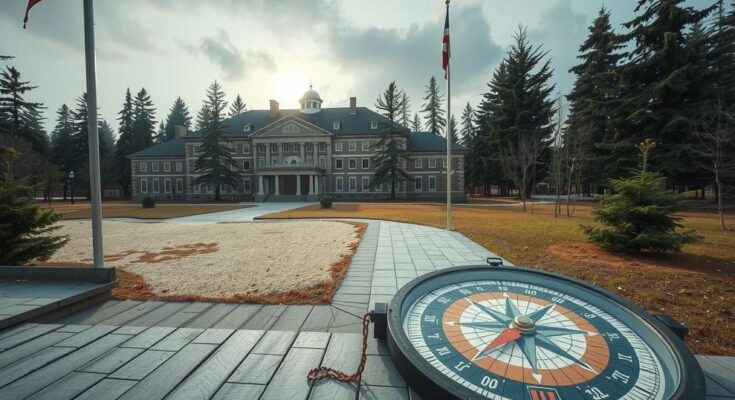The DRC is experiencing renewed hostilities as Rwandan-backed M23 rebels capture territories in eastern provinces. President Félix Tshisekedi calls for military recruitment, emphasizing a strong response to the advancing rebels. International scrutiny of Rwanda’s military support intensifies amidst claims of exploitation of the DRC’s mineral wealth. The escalating conflict underscores the urgent need for diplomatic solutions.
Rwandan-backed M23 rebels have advanced in eastern Democratic Republic of the Congo (DRC), consolidating their control as international appeals for calm have failed to yield results. Reports indicate that M23 fighters have taken two districts in the South Kivu province, nearing Bukavu, without encountering resistance. This escalation marks a significant intensification of the ongoing conflict, reminiscent of the turmoil from 2012 in the region.
In a recent address, Congolese President Félix Tshisekedi urged the youth to enlist in the military to combat the rebel forces. He announced a robust and coordinated military response to the ongoing threat, emphasizing the need for young people to serve as the nation’s defense. His statements followed the capture of Goma by rebels and Rwandan soldiers, an event representing the most pronounced escalation of hostilities in the region in years.
As M23 rebels threaten critical cities, including Bukavu and Kavumu, Tshisekedi voiced his frustration with the international community’s inaction, which he characterized as an affront given the deteriorating security situation. He highlighted the urgent need for community and international support to address the crisis, which posed dangers extending beyond DRC to the broader Great Lakes region.
International scrutiny is intensifying regarding Rwanda’s involvement in supporting the M23 rebels, with reports estimating that Rwanda contributes approximately 4,000 troops to the conflict. This assistance is claimed to be in stark contrast to conditions observed in 2012, raising further alarm among U.N. experts. The United States expressed its concerns, urging Rwanda to be cautious in its military engagements.
Despite this pressure, Rwandan officials maintain their position, with Ambassador Vincent Karega insisting that the M23 will continue its advance. Tshisekedi notably declined to participate in an emergency meeting orchestrated by the East African Community to address the ongoing conflict, underscoring the discord surrounding diplomatic discussions intended to foster peace.
Amidst these developments, the DRC’s immense mineral wealth, particularly in gold, cobalt, and coltan, is increasingly attracting scrutiny. The DRC government alleges that Rwanda’s military operations are aimed at seizing resources from the region, a view supported by U.N. analyses citing Rwanda’s de facto control over M23 militias. Rwanda refutes these accusations, insisting its goal is to eliminate the FDLR, an armed faction responsible for the 1994 Rwandan genocide.
The conflict in eastern DRC has roots in historical tensions stemming from Rwanda and the broader Great Lakes region. The M23 rebel group, originally formed in 2012, has resurfaced with renewed vigor, backed by Rwandan military support. The DRC’s vast mineral resources, including precious metals and minerals essential for global electronics and battery production, have fueled both local and foreign interest, compounded by accusations of Rwandan exploitation of these assets amidst its military engagements.
In summary, the DRC is currently faced with significant military challenges as Rwandan-backed M23 rebels advance towards strategic locations, prompting President Tshisekedi to call for mass military recruitment. The situation has drawn international concern about Rwanda’s involvement, reflecting broader geopolitical implications. The persistent conflict over territorial control and resource exploitation emphasizes the urgent need for diplomatic interventions and resolution strategies.
Original Source: www.theguardian.com




